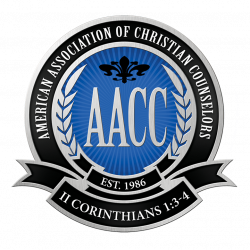

Seminar: Religious Folklore
Bank Text Scam
Minute with Maxwell: “Action”
Interview: In Truth Psychiatric Services
(Unedited Transcript)
INTRODUCTION
Attention
Welcome to Financial Freedom God’s Way, where you are continuing to learn, apply, and pass on, Bible-based financial principles and applications so that you and your family will not only just survive, but thrive during these very uncertain times.
Overview
Hi and welcome everyone, this is Bob Louder from Christian Financial Ministries, and it is an absolute honor to have you with us again—it really is. Where are we going during our 30 minute time together today?
- Today,
- First of all, we’re going to see how we as Christians get into a whole lot of trouble by being too close to the world and not nearly close enough to God, we’re going to talk about sayings that sound spiritual but are not found in the Bible—that means we are going to be talking about religious folklore.
- Then, you will discover the phony bank text scam that’s going around that can cost you some big buck.
- Christian leadership author, teacher, trainer, mentor, and coach John Maxwell with share with us his thoughts on the word ACTION
- Then, well then you are going to hear the first of what will be a regular feature on this program, today will be our first on-air interview with local small business owners and operators, service providers, and local officials.
Motivation
So stay tuned, you are not going to want to miss a minute of today’s program.
And as we start, well please join me in prayer to make sure He is the one we are going to hear from these next 30 minutes. Father, thank You for meeting with us again today. Please give us ears to hear all that it is you have planned for us, to Your glory, in Jesus’ mighty name, amen.
BODY
Radio Seminar
OK….during all of our times together you have seen that we are all about drawing heavily on the Word of God. That being the case, it is time to switch gears just a bit—it is time to raise a warning flag. It is time to make sure we know that not everything that sounds spiritual is scriptural. There is quite a bit that we hear that falls into the class of what is called religious folklore.
- What is religious folklore?
- Religious folklore are sayings that sound spiritual but we are not going to find those sayings in the Bible.
- It includes information that gets us into trouble when we too close to the world and not nearly close enough to God
- Let me give you an example.
- Elderly couple came in for counseling.
- Got to know them for a little bit, then asked how we could help them.
- Concern for their out-of-work son. He wanted to borrow $50 from them to help get started in a new business. They asked what I thought of the idea.
- Well, I didn’t jump right in with all my thoughts on the subject, and I had quite a few. PTL I kept my mouth shut and simply asked them if they had prayed about it. They said, “Why, yes we have.”
- I asked what God had told them.
- They said they were confused because they had the resources to help but believed God didn’t want them to.
- I asked, “Why?”
- The husband said he didn’t remember exactly where, but he was sure that somewhere in the Bible God said, “Never a borrower or a lender be.”
Now let me ask you…is that what God’s Word says? Never a borrower or a lender be…is that what the Bible says? Well, the short answer is no…that saying does not come from the Bible. WHERE DOES THIS SAYING COME FROM (Poor Richard’s Almanac…actually somewhere in Shakespeare.) It sounds good but it is not from God. It is religious folklore. And that religious folklore was tearing apart that family.
- Now, we have already learned that there is more to say about money in the Bibles that any other single subject except for the subject of love—some 3000+ verses talk about money: how to make it, spend it, invest it, lend it, save it and on and on. Now, if the Bible has so much to say about money and it does, why in the world would we want to spend part of our valuable time together talking about what the Bible does not say?
- Why? Because we need to begin to recognize our bad habits before we can move to replace them with good habits—we need to be able to identify our worldly habits before we can see the need to replace them with godly habits.
- You see, we often get into trouble because we are entirely to close to the world. Here we see that we also get into trouble if we are not close enough to God.
- We need to discover more and more of what the Bible has to say about money.
- Personal opinion: One of these days another boy over there in the Israeli mountains is going to throw another rock into another cave and uncover another scroll. It will be that long lost book from the antiquities—it will be the book known as the Book of First Opinions. So here we go…right from that infamous Book of First Opinions we have some great examples of religious folklore.
——————– 1.
“God helps those who help themselves.”
- Have you ever heard this? Is this what God says? He says, “I delight in helping those who can never help themselves.”
- Read Eccl 9 when you get a chance.
——————- 2.
Or how about this one…”Money is the root of all evil.”
- IS THAT WHAT GOD’S WORD SAYS?
- That is not what the scripture says. That has to be 1st Opinions 1:1. That is probably the most misquoted scripture about money in all of the Bible.
- WHAT DOES GOD’S WORD SAY IS THE ROOT OF ALL EVIL? Paul did not say money was the root of all evil. He said that the love of it was what caused all the problems.
- It is not the money we have or do not have that we should be concerned about as much as our attitude about all that we have been given.
- No, money is not the root of all evil—that is a great example of religious folklore.
——————– 3.
And here is another one, have you ever heard this: riches THE evidence of God’s blessing. They may be AN evidence, but riches are not THE evidence of God’s blessing.
- Now here is the fallacy of this one: If you try to apply this criterion to Jesus Christ, He simply does not measure up.
- Jesus was not “rich” in that He never accumulated material wealth.
- In fact the scripture says He lived from the women…the women helped supply His way.
- Now, do not get the idea that Jesus did not have money nor had no reason to manage money. He had to have money to care for Himself and those traveling with Him. He had enough money He had to have a treasurer…remember Judas.
- Jesus did tell us that it is tough to be both rich and be spiritual. Remember,
Harder for a camel to pass through the eye of a needle than for a rich man to enter the Kingdom of God.
<Story of the needle gate—great study>
- And Jesus also tells us to
Beware, be on your guard against every form of greed, for not even when a man has an abundance shall his life consist of his possessions.
- And Jesus gave us a very interesting parable to describe this…the parable of the sorer. Remember? He said the Kingdom of God was like seed. And some of that seed could be sown among the thorns, which are the riches and pleasures of life. And what happened?
And though the word is received with great joy in the beginning, the riches and pleasures of life grew and choked out the Word… so there was no fruit.
- Has this happened to us? Did you ever have that happen to you as a Christian?
- Remember when you were first in love? ….
- Remember when you first found your love for the Lord. That great joy that you had in the beginning, that fire, that desire you had to serve the Lord. Remember, you talked you prayed you praised.
- Some say, “Why, I still have the joy of the Lord in my heart…I’m just more mature now.” When some Christians talk about having the joy of the Lord in their heart, I feel like someone ought to tell their face….
- Sometimes I believe we become like the Church of Ephesus as described by Jesus in His revelation. Remember, Jesus said they had lost the freshness and enthusiasm of their early devotion; they were still loyal and true, they just lacked passion.
- We start out with a passion for God. However, if we are not careful, our passion for God begins to cool down. And sometimes we allow our passion for the person of Jesus Christ to be replaced by our passion, and devotion to our church, our denomination, our study, rules and regulations, our spiritual gifts, even our commitment to God. These are all well and good but should never replace our passion for Jesus Christ.
- For us it could very well be that the riches and pleasures of this life have slipped in and choked out our joy.
- Perhaps the solution to our lack of joy is more maturity, not more money.
- By the way, sometimes in coaching sessions I have folks tell me something like this, “Bob, I don’t have any riches and pleasures and I still don’t have any joy?” Remember, joy is a function of attitude, not the amount or value of what you have. True, shortages and debt can choke out joy. The key is for you to focus on God not your circumstances.
- Riches and not THE evidence of God’s blessing, they are AN evidence.
Scam Alert from the BBB
My friends, there is a new bank text scam that’s popping up in recent Better Business Bureau Scam Tracker reports. This time con artists are impersonating your bank.
How this scam works
You receive a text message that looks like a fraud alert from your bank. It claims there is some unusual activity in your account. This text may read something like, “Bank Fraud Alert – Did you approve a transaction for $1,000? Reply YES or NO.”
If you reply to the text, the scammer now knows they have an active phone number and a person to scam.
What happens next is that the scammer will call you to follow up, and the number will appear in the caller ID as coming from your bank. When you answer, the caller claims to be a bank representative who can help stop the fraudulent charge by verifying your account. All you will have to do is to send some money to yourself using a digital wallet application. The caller walks you through the process of connecting the app to your bank account. Then, they ask you to verify the connection by sharing the code your bank just sent you.
If you do, then the scammer can set up an account with your phone number and email – but their bank account information so that when you send money to “yourself,” you’re actually sending money to the scammer.
That’s how the scam works, but how can you avoid it?
- First, ignore any instructions to reply yes or no if you receive an unsolicited, text message even if it appears to be from your bank.
- Then second, check out what’s happening by calling your bank direct—you can use the phone number on the back of your ATM card or the one that’s on your bank statement.
- And finally, never share even one-time passcodes. Scammers can use one-time passcodes from your bank or any other company to access your accounts and change information. Don’t share them with anyone, no exceptions.
To, there you have it, all you need to know to avoid the bank text scam that’s going around.
Interview with In Truth Physiatrist Services
John Maxwell
OK, it’s time again for one of the highlights of all of our times together—it’s time for yet another Minute with Maxwell as Christian pastor, and leadership author, teacher, trainer, mentor and coach John Maxwell shares with us his thoughts on the word Action.
Is there something you’ve been holding off on, but know you need to do? The more you wait, the longer it will take to happen. Great things will happen as soon as you take action.
On-Air Community Service Interview
Conclusion
Review
Boy, this has been another great time together.
- Recall you learned how important it is to stay away from religious folklore—all those sayings, that sound spiritual but are not found in the Bible..
- Then, you discovered all about the phony bank text scam that’s going around and how to avoid it.
- John Maxwell just shared with us his thoughts on the word ACTION.
- Then, finally, you learned how In Truth Psychiatric Services is such a tremendous help to our local mountain communities and beyond.
In closing, first remember you can either re-listen to or get a transcript of this program on our website at www.christianfinancialministries.org, and second, well, it is time to close this time together in prayer. Father God, I thank you for bringing us together today and for each of the days to come to Your glory in Jesus’ name. Amen.
Have a blesse d day, won’t you, and we’ll see you next time as we continue down your personal road to Financial Freedom God’s Way.





